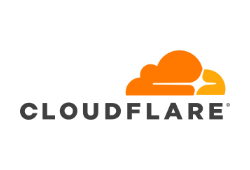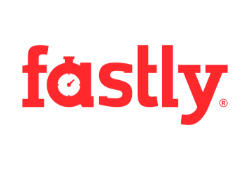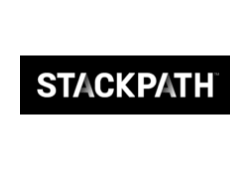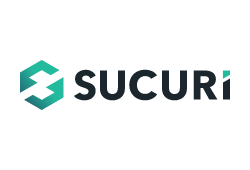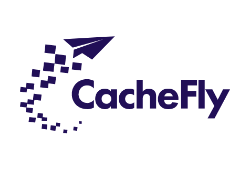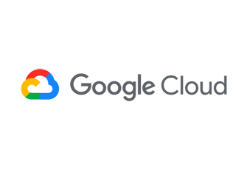Best CDN Services to Slash Website Load Times in 2024
Written By James MacMillan
Updated: February 6, 2024
The time it takes for your website to load can significantly affect the user experience and how your online business performs. The time to the first byte and page load time are also important factors that influence your website’s SEO ranking.
That’s where some of the best CDN solutions can help. A content delivery network has other benefits, such as cutting down bandwidth costs, improving security, and making it globally accessible.
Show more...
Includes: Easy-to-use DNS, unmetered DDoS protection, SSL, and more
1. Cloudflare
Cloudflare has become synonymous with quality CDN service. The company is present on six continents, in 100 countries, and across more than 270 locations, and even has plans for individuals, professionals, small businesses, and global enterprises. Cloudflare also includes an excellent free plan, perfect for anyone looking to improve their website.
- ⦿Great for smaller companies
- ⦿A substantial range of free and paid packages
- ⦿Excellent security features
Locations:
270+
Bandwidth:
No limit
Number of websites:
100+
Security:
DDoS protection, firewall, rate limiting, VPN, and more
Includes: 3+ TB bandwidth, image optimizer, TLS, reporting, and more
2. Fastly
Fastly is one of the most popular CDN services, and it’s used by some of the most visited websites on the internet, such as wikiHow, Yelp, GitHub, Wired, and Business Insider. It may have lost some of its major clients in 2021, such as Amazon.com, Twitch, and Reddit, because of an outage, but it still offers a top CDN solution with highly configurable options for end users.
- ⦿Great for APIs
- ⦿Always enabled DDoS mitigation
- ⦿Dedicated IPs
Locations:
100+
Bandwidth:
30 TB and more
Number of websites:
Unlimited
Security:
WAF, DDoS protection, virtual patching, TLS, and more
Includes: a 14-day free trial, low latency, flexible pricing, SSL, real-time monitoring, and more
3. Bunny.net
Bunny.net is a great content delivery network provider, and its network spans more than 100 locations and covers six continents. It has a wide range of products and content delivery solutions. This CDN provider can easily scale with your growing online business and has the infrastructure to back it up.
- ⦿One of lowest latencies in the market
- ⦿Permanent caching
- ⦿Comprehensive security features
Locations:
110+
Bandwidth:
unlimited
Number of websites:
unlimited
Security:
DDoS protection, geo-blocking, hotlinking protection, network limits, token authentication
Includes: SSL, 24/7 support, custom rules, scripting, and more
4. StackPath
StackPath is a Dallas-based CDN used by major organizations such as Valve, PBS, and Bootstrap. It has some of the best edge server networks on the market and customized solutions for gaming, media, and entertainment. It includes advanced security features and optimization settings that will help speed up your website’s load time.
- ⦿Great for large file delivery
- ⦿Reporting and real-time analysis
- ⦿Redundant Tier 1 carrier
Locations:
60+
Bandwidth:
1+ TB per month
Number of websites:
2+
Security:
TLS, SSL, DDoS mitigation, and more
Includes: WAF, virtual patching, load balancing, and more
5. Sucuri
Sucuri is among the CDN platforms that offer more than just edge cloud servers. With this edge cloud platform, you can do a full security audit of your website, improve its speed, add protection measures, and fix any problems you find. With a 30-day money-back guarantee, you can’t make a mistake if you test out Sucuri for yourself.
- ⦿Comprehensive security package
- ⦿Significant performance boost
- ⦿Malware removal
Locations:
12
Bandwidth:
unlimited
Number of websites:
1+
Security:
WAF, virtual patching, DDoS mitigation
Includes: Image optimization services, managed services, custom edge scripting
6. CacheFly
CacheFly is a Chicago-based CDN company founded in 1999 as Downloadhosting.com, providing file distribution for small developer teams. Nowadays, it’s the fastest CDN for low-latency video streaming, and it also offers managed solutions. Known brands like Adobe, Bandai Namco, LG, Microsoft, and many others use this provider’s services.
- ⦿Low-latency video streaming
- ⦿Managed CDN services
- ⦿Optimization for mobile-based content
Locations:
50+
Bandwidth:
10+ TB per month
Number of websites:
10+
Security:
SSL, WAF, real-time blocking, and more
Includes: TLS v1.3, monitoring, debugging, SSL, and more
7. Google Cloud
Google Cloud is Google’s own platform for speeding up web pages, and it has plenty of features for advanced users and integration with other products. It’s a great tool for experienced users, with a somewhat complicated pricing structure that will depend on your website’s bandwidth requirements.
- ⦿Established infrastructure
- ⦿Integrates with Google’s other platforms
- ⦿Bandwidth-dependent pricing structure
Locations:
100+
Bandwidth:
unlimited
Number of websites:
unlimited
Security:
SSL, audit logging, WAF, DDoS protection
How Does a CDN Work?

When you’re opening a website, all it seemingly takes to get the page opened on your browser is to type in the address, wait for a second, and freely browse the page. However, it’s not as simple as that.
A web address like “www.example.org” is tied to an IP address, which is a string of numbers, such as 192.168.0.1 (this example IP is used for local area networks, and not websites).
In order not to have to remember a string of numbers ranging from 4 to 12 figures, the URL is sent to a DNS server, which serves as a figurative “address book.” The DNS server processes the URL request from your internet service provider and delivers the requested page.
The DNS forwards the request to the CDN service, which stores the cached version of the website, and redirects it to the node closest to the user based on their IP address. This is known as Unicast routing.
Most CDN providers use Anycast routing, which has advantages such as less traffic congestion, protection against DDoS attacks, and better availability, as multiple nodes with a single IP architecture have more redundancies than Unicast.
If you use a CDN for your website, visitors will be routed depending on multiple factors, such as the location request, CDN server load, and the type of content requested.
When the distance that data needs to travel is lower, you’ll have lower command input latency, better video streaming, and, most importantly, shorter website loading time.
An additional benefit of CDNs is having additional copies of your website in case of server crashes. While even the most affordable hosting providers have impressive guaranteed uptimes, you can still benefit from preparing for the worst-case scenario.
CDN servers are located at internet exchange points, and it’s one of the main reasons why they can speed websites up. These are locations where networks of multiple ISPs are connected to allow communication between them.
CDNs are also referred to as edge servers and are used to host a cached copy of static content, such as HTML, images, CSS, and JavaScript.
Top CDN providers are also used by large companies to distribute other types of media besides websites. They can host data for games, video, audio, and software, and deliver it efficiently to users around the globe.
What Is a CDN Service?
A content delivery network – CDN – is a network of servers located at the so-called “network edge.” Closer proximity to the user means that the time the information needs to travel is greatly reduced, and a website or a web application loads much faster.
The content delivery network servers store a cached copy of your website, meaning that anyone who wants to access it doesn’t have to send the request to your main server and wait for the information to be delivered across a greater distance.
Apart from making your website faster, CDNs also improve its security and reduce the amount of traffic that goes through your main server, thus reducing bandwidth consumption.
How We Evaluate CDN Service Providers
Our main criteria for choosing CDN providers were network size, coverage, time to first byte, pricing, and support.
Network Size and Coverage
Waiting for a website to load can be frustrating, and it’s the main reason why a site can lose traffic, users, and potential customers. On top of that, Google can give your website a lower ranking because of poor load times. That’s why even a cheap CDN can make all the difference and help push your online business.
You can reduce your website’s bounce rate as CDN speeds up the time to first byte. Internet users are mostly used to instant access and expect to find information quickly, and this performance directly depends on the CDN’s network infrastructure (the number of servers) and coverage (how many IXPs have the provider’s servers). All these factors directly influence the speed of the CDN service.
That’s why we focused on CDN service providers with a robust network infrastructure.
Bandwidth
The amount of traffic your website attracts will directly impact how much bandwidth you need, and paying your hosting service for extra bandwidth may be more expensive than using a CDN.
When you’re deciding on a content delivery network provider, make sure to check what bandwidth they’re offering. You’ll need to compare it with your website’s traffic since going over your allotted limit may incur additional charges.
Some providers charge you for the actual traffic going through the CDN to your website, and this may be the best solution for smaller businesses.
Remember that traffic can vary, as some websites have more or fewer visitors depending on the season. However, it’s not always unpredictable, and you can plan for an increase in traffic following certain promotions, such as after a successful email marketing campaign.
Since a CDN directly lowers the bandwidth requirements for the origin server, you might also consider downgrading your subscription plan if you’re currently paying extra for more bandwidth.
Pricing
The pricing will dictate how much you can invest in the infrastructure of your online business. You have the option of paying based on the amount of data transferred, the number of requests processed, or you can pay a flat fee.
There’s always the option to try CloudFlare for free and see for yourself if you actually need a CDN. Certain providers also offer discounts for long-term subscription plans.
You can always compare pricing plans and decide on those that meet your needs and then upgrade further down the line if necessary. Companies that we listed here have scalable solutions you can adjust to your requirements.
Customer Support
You can have the best content delivery network in charge of caching your website, but something can still go wrong and have a disruptive effect on the day-to-day operation of your online business.
If you’re not someone with previous experience using CDNs, you’ll definitely need help at some point.
The providers we listed here are known for good customer service, and most have support teams that are available 24/7. Available communication channels are usually email and live chat.
Security
Top CDN solutions implement much-needed security measures, such as DDoS protection. Some services even include free SSL certificates. Even if you’re not considering using a CDN for a website that hosts user data, such as payment information, you can benefit from the basic security it provides.
However, if you’re considering starting an eCommerce business, it’s better to find a CDN that has a good set of security features. Some are compliant with PCI DSS, meaning that visitors can confidently use the site without worrying about compromising their payment card data.
If you don’t already have a hosting service that provides you with an SSL certificate, you should seriously consider finding a CDN that will. Having an HTTPS instead of an HTTP address lets your users know that the connection is encrypted and that nobody can spy on them during the session.
This encryption is also necessary for ranking well on Google, as it’s one of the multiple factors that determine how easy it is to be found via Google search.
Top CDN providers include DDoS protection in their plans. This cyber threat is just one of the many tactics commonly used by malicious parties to disrupt websites.
If you’re using a content management system such as WordPress or Drupal, you should consider a service with a web application firewall. Such security measures are effective against SQL injections and cross-site scripting.
How To Find the Perfect CDN for You
So, how can you be sure if a certain CDN is the best option for you? You’ll need to consider where your audience is from, what type of content your website has, and if your website is static or dynamic.
If you’re aiming to reach a global audience, using a CDN is a much better option than relying on a single server. You can expect much better performance and faster load times anywhere.
A CDN provides great value for static websites, as it can cache the content without the need to fetch it often from your server. For websites hosting video files or streaming content, it can help with reducing latency and improving user experience.
BEST CDN: OUR TOP 5 PICKS
- Cloudflare
- Fastly
- Bunny.net
- StackPath
- Sucuri

Best CDN - Reviews
Cloudflare
Pricing:
excellent
Features:
excellent
Security:
excellent
- ⦿Great free plan
- ⦿Can scale up depending on project needs
- ⦿Data centers across the globe
Cloudflare is one of the most famous CDN providers, and for a good reason. It’s a go-to solution for small businesses, individual bloggers, large enterprises, and professionals, as it can scale to meet the needs of corporate networks, secure APIs, and web applications.
This CDN provider has multiple products, such as SASE, application services, network services, a platform for developers, zero trust services, and more. Both the application and zero trust services have free plans, including a free SSL certificate.
Cloudflare has great coverage, with data centers in more than 100 countries and 275 cities around the globe. The infrastructure can process around 36 million HTTP requests per second.
Unlike some other CDN providers, Cloudflare offers a highly functional free plan. Anyone can reliably use the service with unlimited bandwidth and get DDoS protection with an easy-to-use interface.
So, do you even need a premium subscription if you’re running something like a hobby blog?
The answer is yes, you’ll need it at some point. Having a fast CDN like Cloudflare can improve your SEO with image optimization, improve your pages for mobile viewing, add a web application firewall, PCI DSS 3.2 compliance, and provide 100% uptime.
Show more...
Fastly
Pricing:
fair
Features:
excellent
Security:
good
- ⦿PCI DSS
- ⦿DDoS protection
- ⦿Great WAF
With Fastly, you don’t get unlimited bandwidth like you do with Cloudflare, and the company is much less transparent with its pricing plans.
The base price is $50 per month, and then there’s a pay-as-you-go fee of $0.12 for the first 10 TB for North America. Expect that you’ll have to submit a request to get an exact quote for your needs and website traffic.
This content delivery network company includes a number of useful features in its Essential package, including a WAF, DDoS protection, TLS encryption, easy updates, and the option to deploy on any type of infrastructure, including cloud, data centers, or hybrid setups.
Fastly is convenient for providing network services that include websites with media content streaming. If you’re running an eCommerce site and you rely on online transactions, Fastly can cache and deliver content in accordance with the Payment Card Industry Data Security Standard – PCI DSS.
If you need clarification regarding Fastly’s offers, you can always consult some of the experts working there to see what’s the right service for you. You can also take advantage of a limited free trial. We recommend trying the service out for yourself before deciding on any of the paid plans on offer.
Show more...
Bunny.net
Pricing:
excellent
Features:
excellent
Features:
good
- ⦿In-depth traffic analytics
- ⦿Good DDoS protection
- ⦿Permanent cashing
Bunny.net is a fast-growing CDN company founded in 2014. It currently powers more than 1 million websites, and the content delivery network handles more than 650 billion requests per month. Bunny.net recently received series A funding, which will be used to improve the user experience further and add new features to the network.
Bunny.net has a range of products, and Bunny CDN is just one of them. With an 80+ Tbps network and servers that use NVMe drives, the service can significantly reduce latency and speed up the load time of your websites. Bunny.net directly connects your visitors to 14 Tier 1 transit providers and over 3,000 ISPs.
The CDN service provider also includes comprehensive security measures. You can set up geo-blocking and network limits, and Bunny.net also includes DDoS and hotlinking protection as well.
Another great feature of Bunny.net is access to reports and analytics regarding your traffic. Through a user-friendly control panel, you can measure performance, monitor traffic, and get access to real-time stats for your website.
With more than 110 locations, Bunny.net is a great option for anyone who’s in the market for a CDN, and if you’re still not convinced, there’s a 14-day free trial available to try it out for yourself.
Show more...
StackPath
Pricing:
good
Features:
excellent
Security:
good
- ⦿Advanced WAF
- ⦿Free SSL
- ⦿Customizable edge server settings
StackPath is a Texas-based edge server platform offering plenty of solutions for anyone looking for a CDN vendor. StackPath also has the expertise of industry veterans from companies such as Highwinds, Fireblade, and MaxCDN.
With StackPath, you can reduce load time for your APIs, improve SEO, and reduce the bandwidth consumption on your dedicated servers. Even if your server is hosting large files, such as software installation files or high-resolution videos. Users can download files in segments, and StackPath doesn’t impose any file size limits.
StackPath can mitigate any DDoS attacks on your website, in addition to protecting your server from a request overload. StackPath’s Origin Shield balances the load between multiple Points of Presence, so if there’s an issue with connectivity with one edge server, another one automatically handles the requests.
The provider also delivers SSL certification from PoPs, further reducing the workload from your original server. On top of that, you get a free EdgeSSL certificate for each website or web application you add to the CDN or WAF service on StackPath.
StackPath covers a smaller number of locations compared to some other CDN vendors, but it makes up for it with edge servers that won’t be overloaded with requests as easily.
Show more...
Sucuri
Pricing:
good
Features:
excellent
Security:
excellent
- ⦿Superb firewall and malware protection
- ⦿Virtual patching
- ⦿Zero-day exploit prevention
Sucuri is more than just a CDN service, as it offers website security solutions such as malware scanning and removal, hack protection, security scans, and more. However, if you’re in the market for a CDN with a firewall, you won’t be disappointed with Sucuri.
With this provider, your cached website will most often have load speeds improved by 70%. The company guarantees that your website will be reliably accessible, as the CDN has multiple redundancies that will prevent any interruptions from making it unavailable. This fast CDN can be used with multiple platforms such as WordPress, Joomla!, Drupal, Magneto, and phpBB.
More importantly, you can significantly improve the security of your website with Sucuri. It offers great DDoS protection, and if your site is under a DDoS attack, you can restrict access to the Admin panel for your whitelisted IP address.
If your server host didn’t provide you with a free SSL certificate, you get one automatically with a Business or Professional subscription plan. Sucuri is easy to set up, as only a DNS change and access to web server credentials are required.
If you’re also looking for an affordable and reliable cloud backup service, you’ll be pleased to know that this is also in Sucuri’s repertoire. For a small monthly fee, you can maintain a cloud backup and roll back your website to any point in the last 90 days.
Overall, Sucuri has several plans on offer to suit the needs of businesses of all sizes, including a firewall and a cheap CDN service.
Show more...
CacheFly
Pricing:
excellent
Features:
excellent
Security:
good
- ⦿Managed CDN service
- ⦿Great for live streaming
- ⦿Fast TTFB results
CacheFly is one of the best content delivery networks for delivering video content, including live broadcasts, with less than one second of latency. It has more than 50 PoPs worldwide, making it perfect for streaming.
The experienced team behind CacheFly started in 1999, and now it has customers among renowned companies and corporations such as Microsoft, LG, Adobe, P&G, Vodafone, and many more.
If you’re looking to expand your business in some of the emerging markets such as South America, CacheFly can greatly help you out with establishing a responsive website. The Essential package is great for small businesses, and it covers 10 TB bandwidth monthly, up to ten websites, and it includes standard customer support.
With Growth and Performance subscriptions, you receive managed CDN solutions, priority support, dedicated account managers, and many other benefits.
Some notable features offered by this CDN provider include SSO, 2FA, storage optimization, and many custom options you can tinker with to have your CDN tailored specifically for your needs.
You can even get the first month for free, but you’ll have to contact CacheFly directly to receive a quote. The company has flexible billing terms and doesn’t require you to sign a long-term contract, so you can try CacheFly’s global content delivery network without any risk.
Show more...
Google Cloud
Pricing:
fair
Features:
excellent
Security:
excellent
- ⦿Top speeds
- ⦿No issues with useability
- ⦿$300 of credits for testing
We can’t talk about CDN providers without mentioning Google Cloud. You might think that the Google Cloud platform is the best solution for you since you’re already optimizing your content for users trying to find it through Google. But it’s not necessarily that straightforward.
Google offers a powerful solution for enterprises, as we can see from its customer base, which includes brand names like PayPal, Twitter, UPS, Etsy, and Equifax. Small businesses can benefit from Google’s large PoP network, but it may not be as easy to set up as some other content delivery network providers we have on our list.
There are plenty of customization options that you can adjust to your needs, but most people who are new to cloud services won’t know how to configure options like smart congestion control, TLS 1.3, keys, cache modes, and others. Meanwhile, enabling HTTPS requests with other CDN providers is a simple matter, and Google’s documentation on the topic is extensive.
Pricing is also not as simple as with other CDN providers. It depends on your bandwidth usage and how many cache fill and egress requests the CDN processed for your website.
While Google is a great option for developers, small entrepreneurs may get more value from some other providers. Unless you’re prepared to invest time and effort to learn more about edge cloud platforms and how content distribution networks work, it’s better to try another vendor.
Show more...



